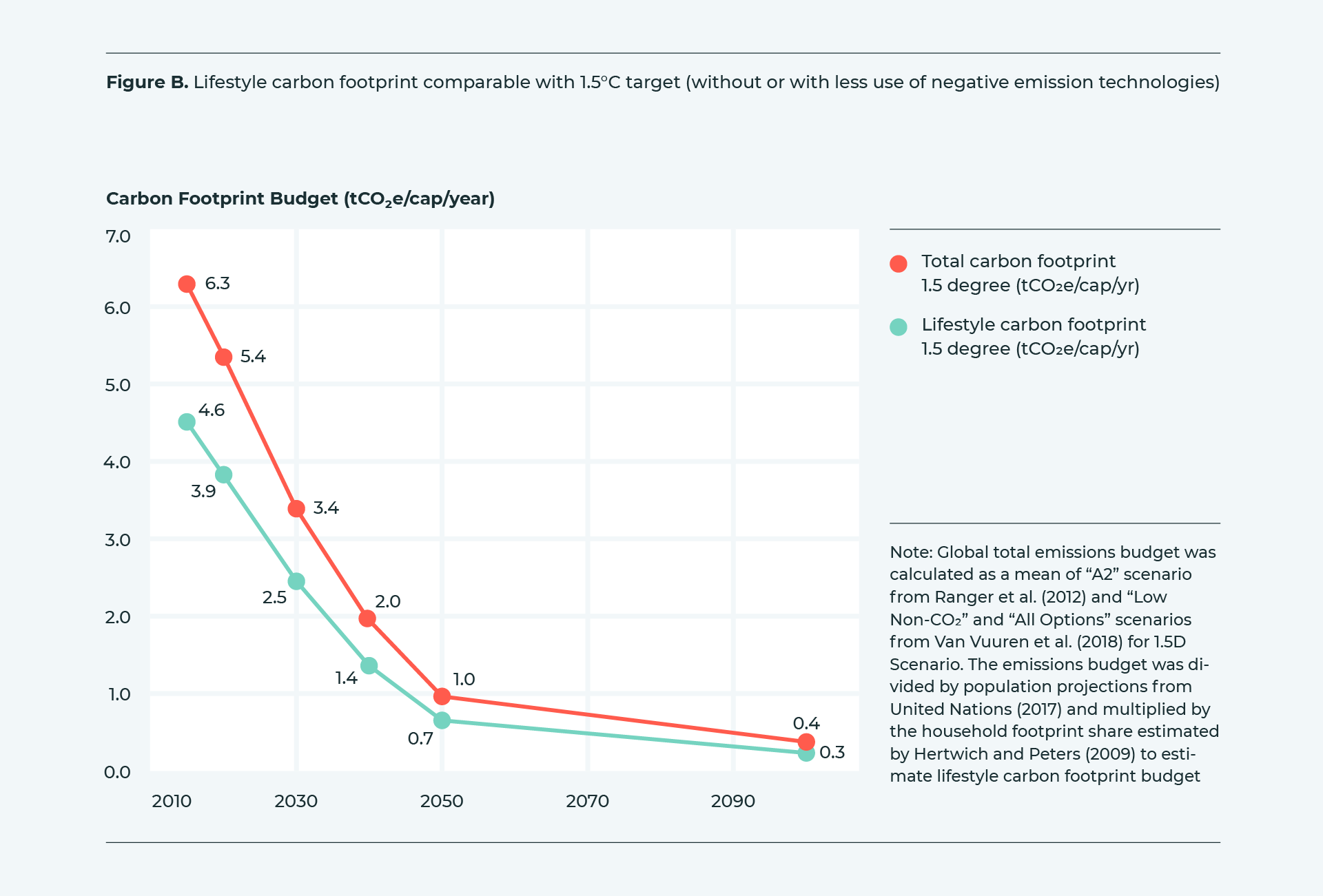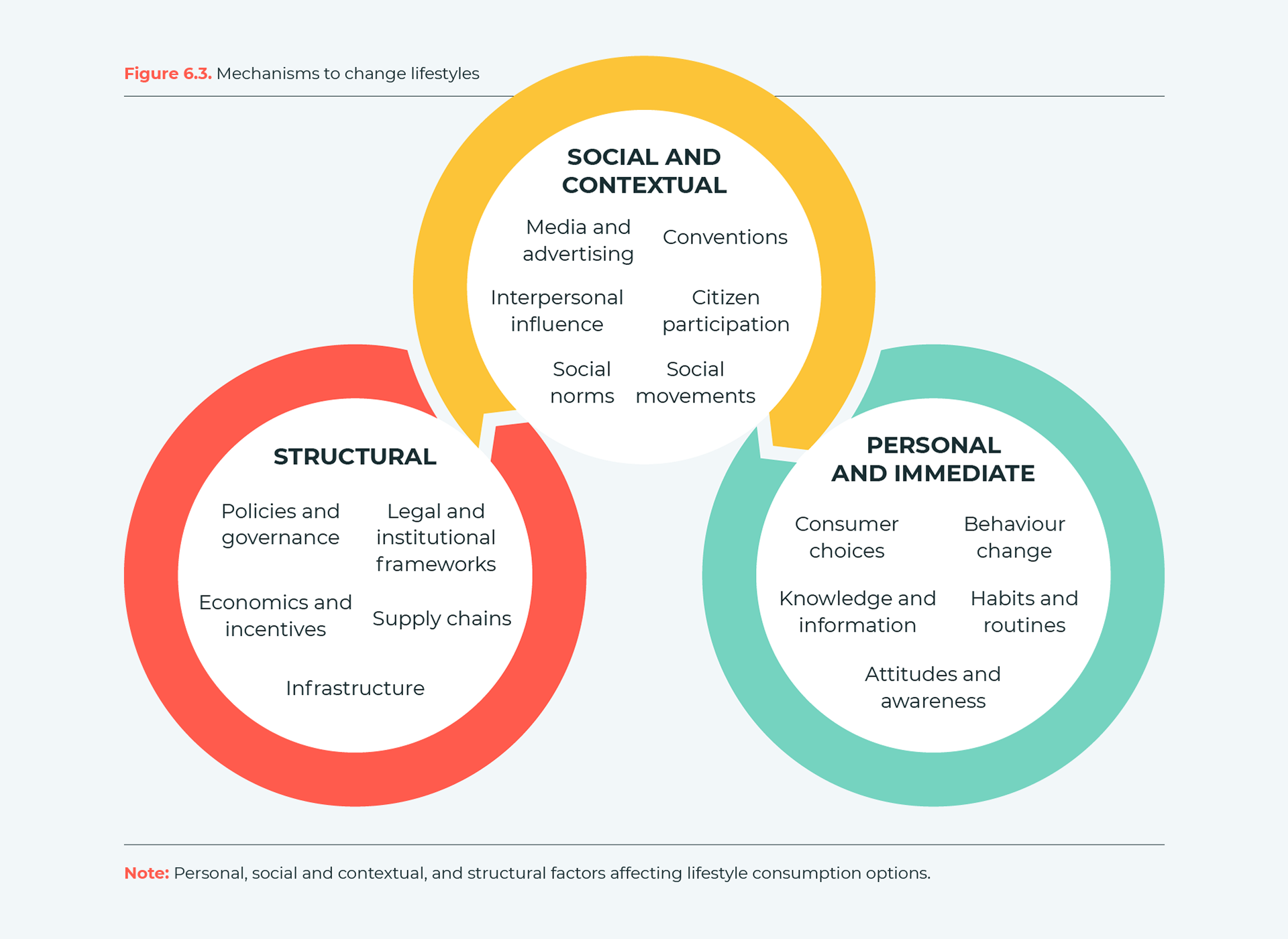Mainstreaming Fair Earth Living
After decades of important focus on technological, policy and supply-side solutions, there is also rapidly growing interest in shifting how we all live together on the planet.
While our personal climate actions add up, this is just part of the picture. We want to mainstream Fair Earth Living by also influencing our friends and community, and in collectively organizing for ambitious actions by governments, businesses and others.
Fair Earth Living is a joint responsibility of all actors. Shaping our cultural and physical context so that all of us can live sustainably requires a society-wide effort.
The gaps between our actual lifestyle footprints and the targets we need to achieve are immense, but they can be narrowed – by taking action immediately.
- In developed countries, such as Canada, footprints need to be reduced 80-93% by 2050, requiring 8-12% reduction every year from 2022 to 2030.
- Even developing countries need to reduce footprints 23-84% by 2050, depending on the country and the scenario.

The ways we drive our cars and fly, how we heat and power our homes, and the decisions we make around our diets and wasted food together account for 60% of our lifestyle carbon footprints. These emissions hotspots can guide where we place our efforts, across different aspects of our everyday lives.
The good news is that Fair Earth Living is also better living.
Ultimately, we don’t need to live high-emitting lifestyles in order to be happy. Instead, happiness and well-being are connected to health, social connection, a sense of belonging and trust, education, security and purpose.
This is about societal change, not just individual action.
Of course, we can’t just blame individuals for our climate mess and expect them to bear the burden of fixing it. Because our dominant social structures are designed to support mass consumerism and other nature-destroying practices, corporations and governments bear the greatest responsibility.
Fair Earth Living isn’t about simply changing light bulbs or more recycling. It’s about a culture shift – with widespread behaviour change at the personal, household and community levels helping to support changes in governance and corporate behaviour.
This includes changes in our diet, transportation choices, personal vacations, housing type, etc., as well as government and business support for things like home heating retrofits, household solar PV installations and electric vehicles.
“Behavioural change by individuals and households (e.g., in terms of diet, transportation choices, personal vacations, housing-type, etc.) is essential if we are to achieve one planet living. It is particularly important to recognise that the positive actions by first adopters are potentially contagious and therefore important in shifting social norms.
That said, government policy support is often critical if the ‘contagion’ is to spread far and deeply enough to make a significant difference. Home heating retrofits, household solar PV installations, and the increasing market share of electric vehicles, for example, would not likely have materialized without government subsidies or other incentives. Society-wide sustainable consumer behaviour is a ‘both-and’ situation.”
Dr. William E. Rees, UBC professor emeritus and creator of ecological footprint analysis
Cultural foundations are required for lasting change.
Without widely shared cultural foundations, even hard-won, seemingly transformative policy options can be quickly reversed or scuttled by elections. However, with strong cultural anchoring, history is rife with examples of turning tides – and governance following suit.
One has only to look at gay marriage in Canada to see how the cultural ship has sailed, with politicians of all stripes defending this human right. Rollback now seems impossible, no matter who is elected: Canadian culture simply wouldn’t accept it. This is what must happen for nature and climate action.
We need a supportive context to live sustainable everyday lives.
The figure below highlights how our ways of living are enabled or constrained by our broader contexts – including physical environments, cultural conventions, social norms, and financial and policy frameworks (UN Emissions Gap Report, Chapter 6, 2020).

Each of us plays many roles, including our roles in shaping our context.
This is in part a political challenge, and citizens are key mobilizers. We’re not just consumers but citizens who can organize to march, advocate and vote for bold actions by government and business. We play many roles that are powerful in advancing Fair Earth Living – including as friends, family members, volunteers, producers and investors.
Why do people consume?
- To meet basic needs: nutrition and subsistence, health, housing, mobility, etc..
- To fulfill social functions/expectations: convenience, connectedness, maintaining relationships, traditions, etc.
- To “advertise” personal social status and/or political and economic power.
- To satisfy personal desires, preferences and tastes: leisure, food preferences, consumer goods, etc.
- In response to social media and advertising/marketing: creation of new markets such as pet food and cosmetics; planned obsolescence; enhanced functionality such as “smarter” mobile phones; etc.
- Because they have no choice: lock-in design of mobility infrastructure favours private car use; urban zoning laws and administrative procedures make urban agriculture difficult; etc.
Adapted from Akenji et al., A Framework for Shaping Sustainable Lifestyles, 2016
We want to take a strategic approach as we seek to mainstream Fair Earth Living.
This means shifting from…
- small actions to acting on emissions hot spots
- a life focused on consuming to better living
- individual choice only to actions taken by people and whole societies
- static footprint snapshots to life changes and journeys
- one-size-fits-all to diverse ways of living
- a focus only on limits to regeneration and abundance.


